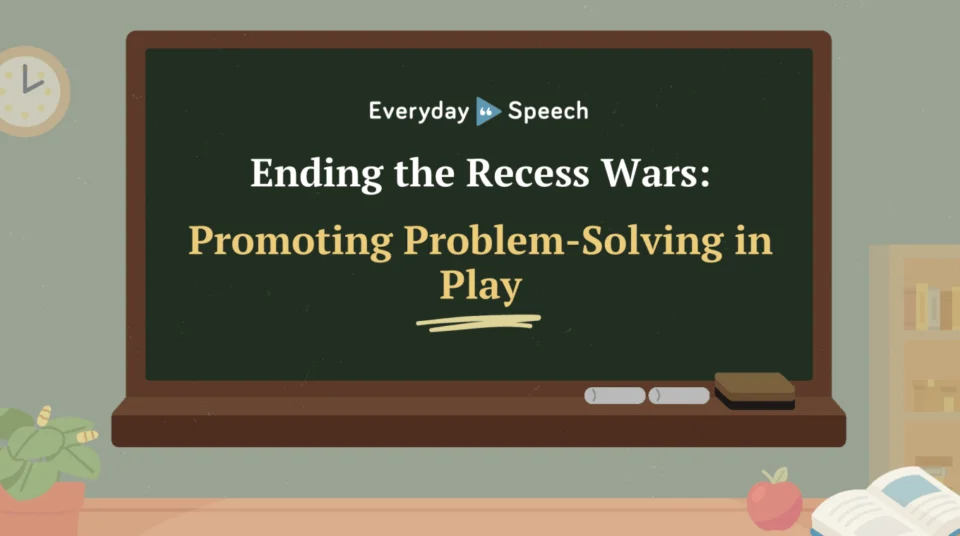Effective IEP Goals for Enhancing Conflict Resolution Skills in PreK Students
Get free social skills materials
No-prep lessons on self-regulation, emotional recognition, conversation skills, and more.
Sign up hereDownload 50+ Example IEP Goals
Customizable library of strengths-based goals
In special education, understanding and addressing the unique needs of students is essential for their success. One important aspect of this is teaching them effective conflict resolution and problem-solving skills. In this blog post, we will discuss the significance of these skills and their impact on students’ learning, social interactions, and wellbeing.
Understanding Conflict Resolution and Problem-Solving Skills
Conflict resolution and problem-solving skills allow students to navigate through disagreements or arguments with friends, called conflicts. These skills help them identify the cause of the conflict, decide whether they need help from adults, come up with solutions, and ultimately resolve the issue. By developing these skills, students can maintain healthy relationships, improve their social interactions, and enhance their overall wellbeing.
The Role of Specialists
Several specialists can support the development of conflict resolution and problem-solving skills in students:
- Speech-Language Pathologists: They can help students improve communication skills, enabling them to express their feelings and thoughts effectively during conflicts.
- Social Workers: They can teach students strategies to manage emotions and promote healthy social interactions, which are essential for resolving conflicts.
- Psychologists: They can help students develop coping mechanisms and emotional regulation techniques, which can be crucial in conflict situations.
- School Counselors: They can provide guidance and support in building positive relationships and navigating social situations, including conflicts.
IEP Goals for Conflict Resolution and Problem-Solving Skills
Here are some specific SMART IEP goals to enhance conflict resolution and problem-solving skills in PreK students:
- Goal: The student will identify the cause of a conflict in 4 out of 5 situations by the end of the school year.
- Strategies/Activities: Role-playing, storytelling, and group discussions about conflicts.
- Goal: The student will independently decide whether they need adult help to resolve a conflict in 80% of situations by the end of the school year.
- Strategies/Activities: Social stories, decision-making practice, and self-reflection exercises.
- Goal: The student will generate at least two solutions to a conflict in 4 out of 5 situations by the end of the school year.
- Strategies/Activities: Brainstorming sessions, cooperative games, and conflict resolution worksheets.
Implementing and Measuring Progress
To implement these IEP goals, educators can use a variety of strategies such as modeling, role-playing, and guided practice. Progress can be measured through observations, checklists, and student self-assessments. Regular communication with parents and other specialists can also help track progress and adjust goals as needed.
Conclusion
Teaching conflict resolution and problem-solving skills to PreK students is crucial for their social and emotional development. By implementing effective IEP goals, educators can help students navigate conflicts and build healthy relationships. We encourage you to apply these goals in your classroom and invite you to explore more resources at Everyday Speech Sample Materials.


